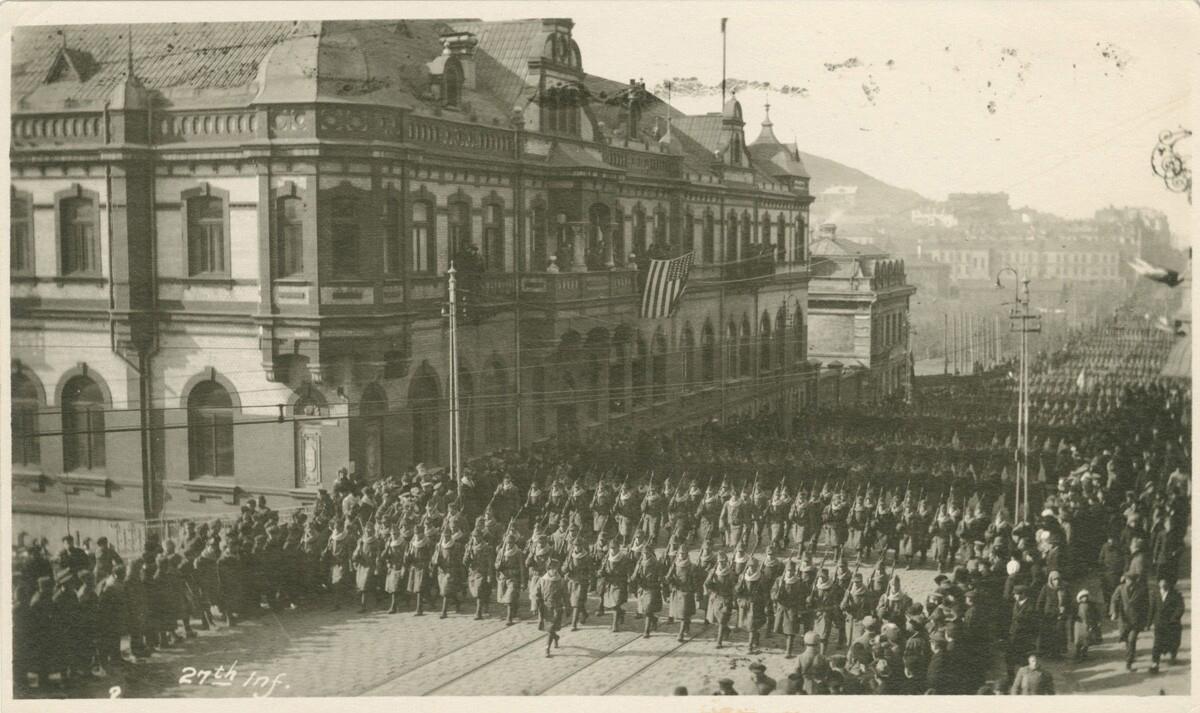In Russia, Scant Traces And Negative Memories Of A Century-Old U.S. Intervention
As Americans accuse the Kremlin of interfering in their elections, and Russians fiercely deny it, there's no debating that the U.S. once intervened militarily in Russia — with few, if any, results.
by Lucian Kim
May 28, 2018
4 minutes

A simple tombstone marks the grave of the lone American buried in the vast Naval Cemetery in Vladivostok overlooking Russia's Pacific coast.
The words "Secretary H. B. Emmez, American YMCA" are carved in English above a cross into the granite slab. There are no dates, epitaphs or other inscriptions.
Emmez is one of the Americans who didn't come home from a U.S. military intervention that began in 1918. He died of typhus while part of a YMCA group that entertained and ministered to American troops sent to protect military stocks in the violent aftermath of the Russian Revolution. The bodies of U.S. servicemen who died during the mission were later repatriated.
A century after thousands of
You’re reading a preview, subscribe to read more.
Start your free 30 days





